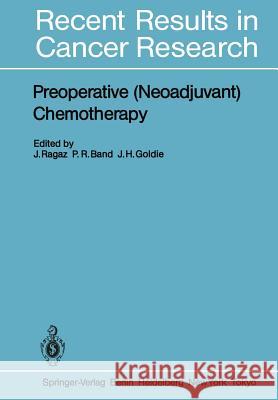Preoperative (Neoadjuvant) Chemotherapy » książka
Preoperative (Neoadjuvant) Chemotherapy
ISBN-13: 9783642826733 / Angielski / Miękka / 2012 / 162 str.
Despite recent advances in adjuvant therapies of cancer, the regi- mens of postoperative adjuvant chemotherapy treatment which are presently available fail to cure the majority of cancer patients. Pre- operative (neoadjuvant) chemotherapy represents a new approach in drug scheduling, based on sound theoretical, pharmacokinetic, and experimental principles. The preoperative timing of chemotherapy before definitive sur- gery is not a minor change in the therapy of cancer. To be successful, large numbers of practitioners and their patients must participate. Substantial alterations of many aspects of the present management of cancer will have to follow. Therefore, before such therapy can be fully and routinely implemented, results of the novel treatment and its rationale have to be carefully evaluated. In preoperative treatment, other features will likely gain impor- tance. For the first time, clinicians have a chance to follow the in vivo response of the tumor exposed to preoperative chemotherapy. The subsequent histological assessment of the tumor sample may likely become an important prognostic guide, permitting more re- fined individual approaches to the planning of postoperative adju- vant treatment. The value of such a treatment strategy can already be appreciated in the clinical setting, as seen from the therapy of osteosarcoma. Furthermore, preoperative chemotherapy might render previously inoperable tumors operable and hence resectable with a curative intention. The preoperative reduction of tumor bulk may also effectively decrease the need for more radical operations, permitting a more uniform adoption of conservative surgery.











